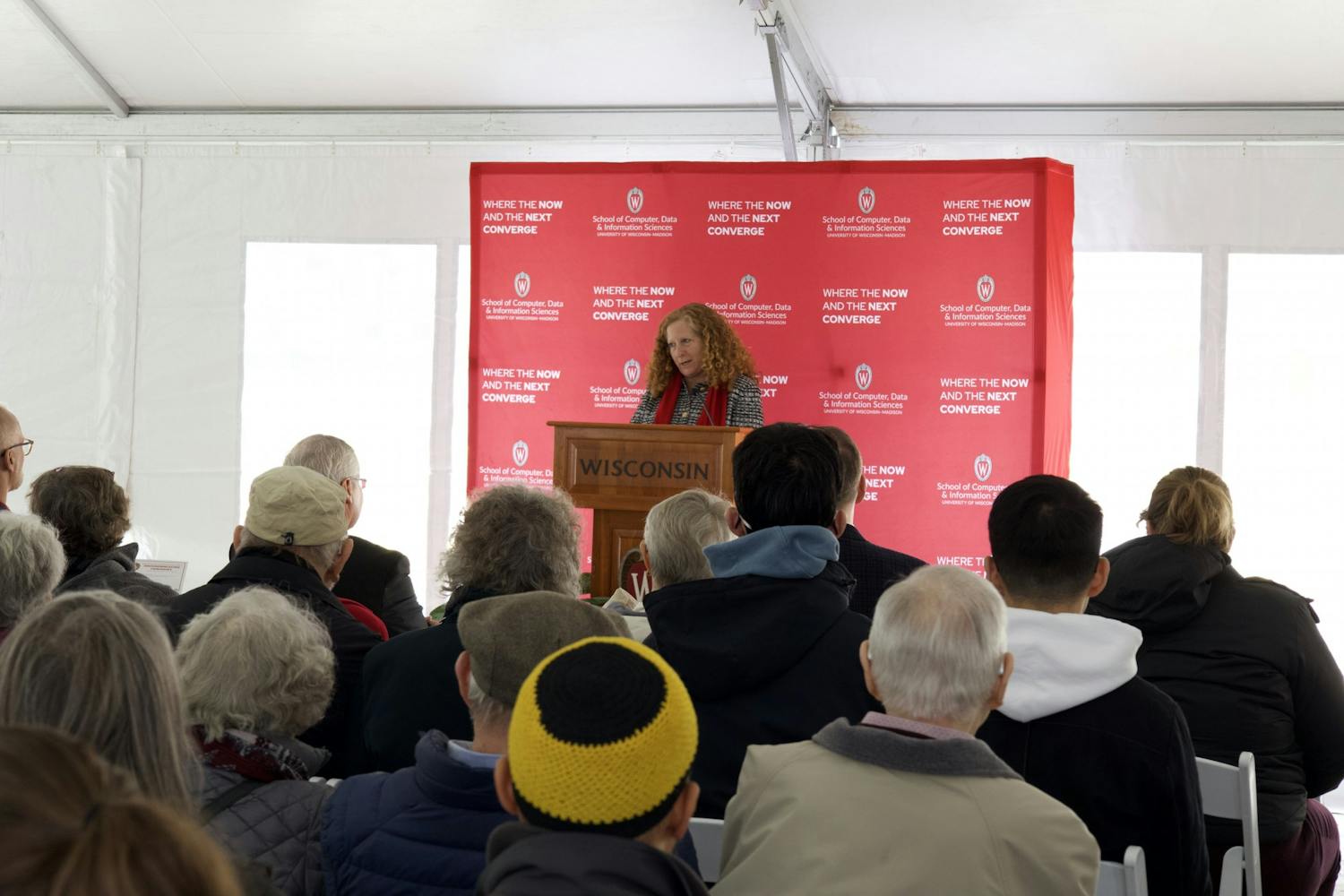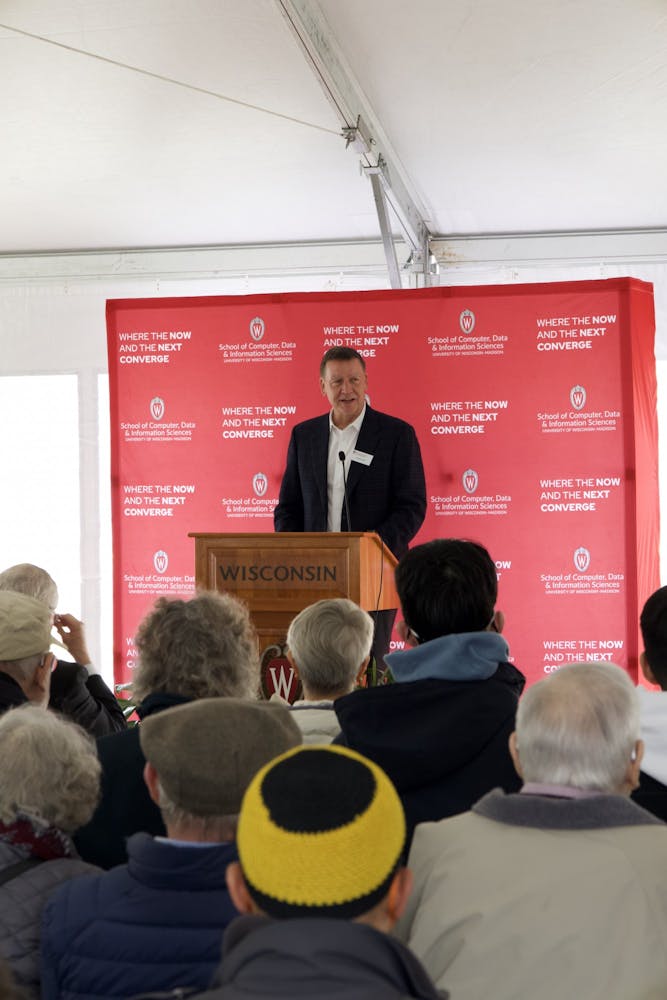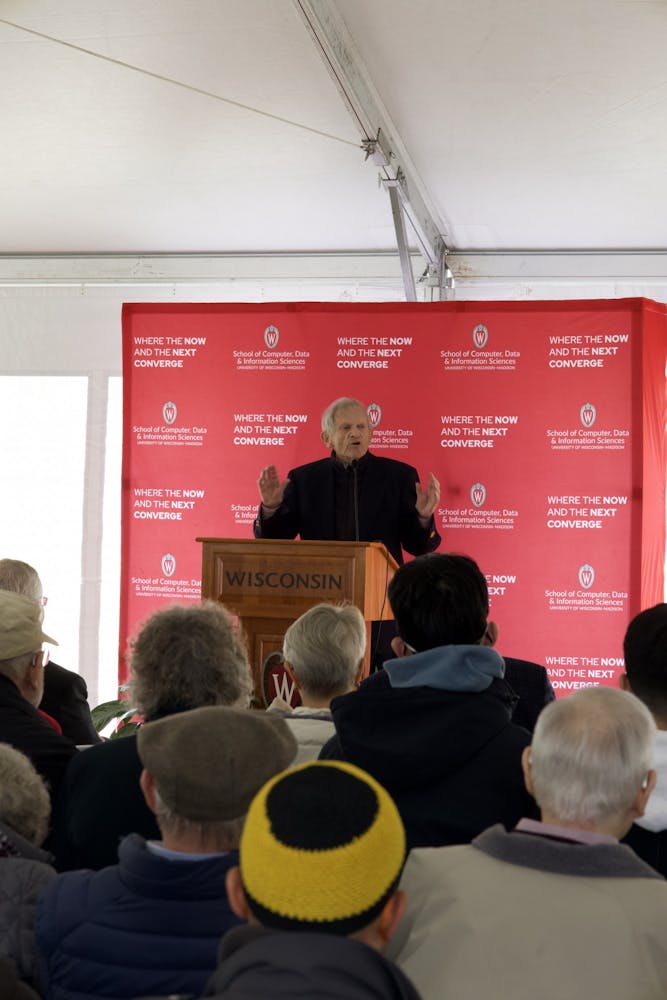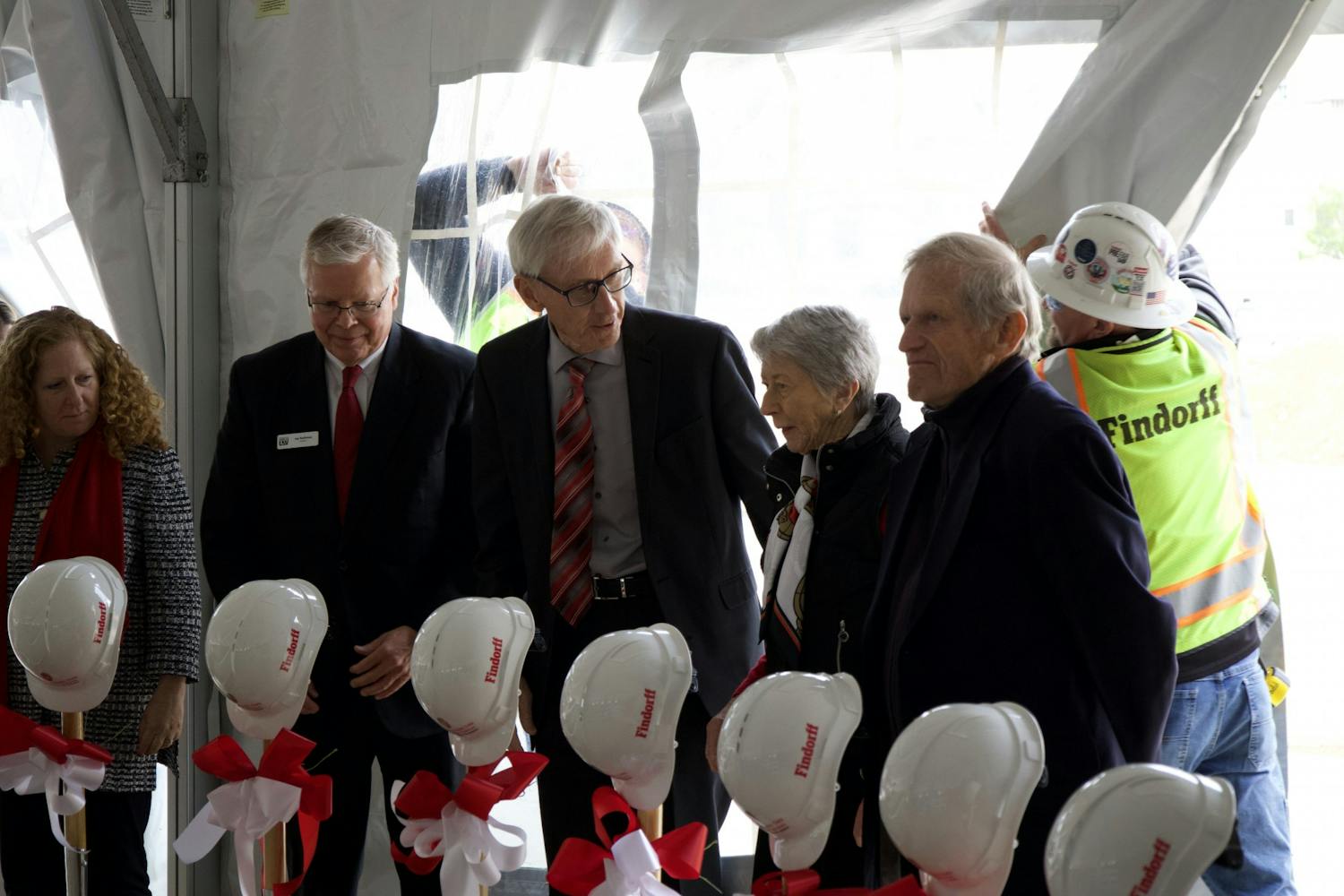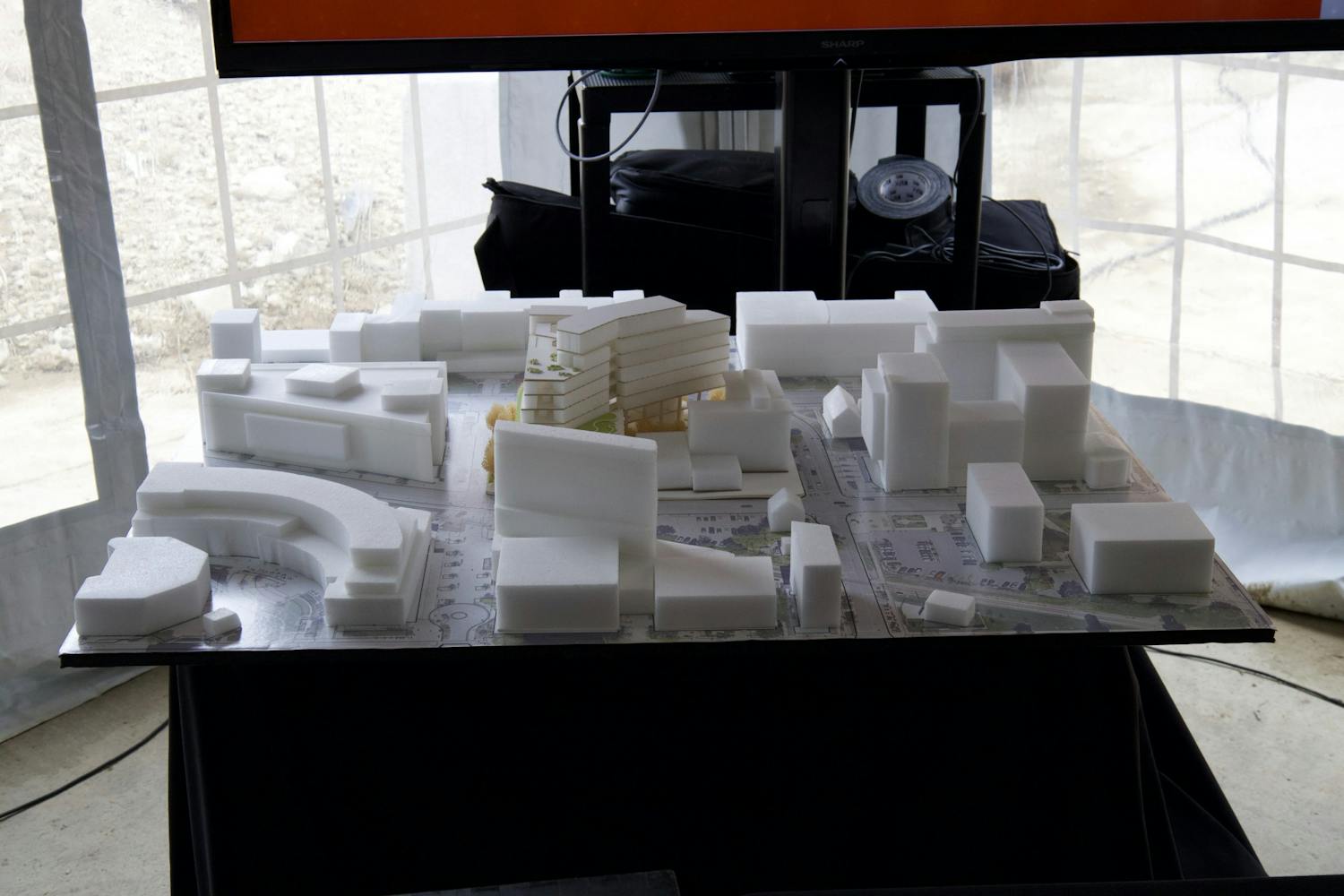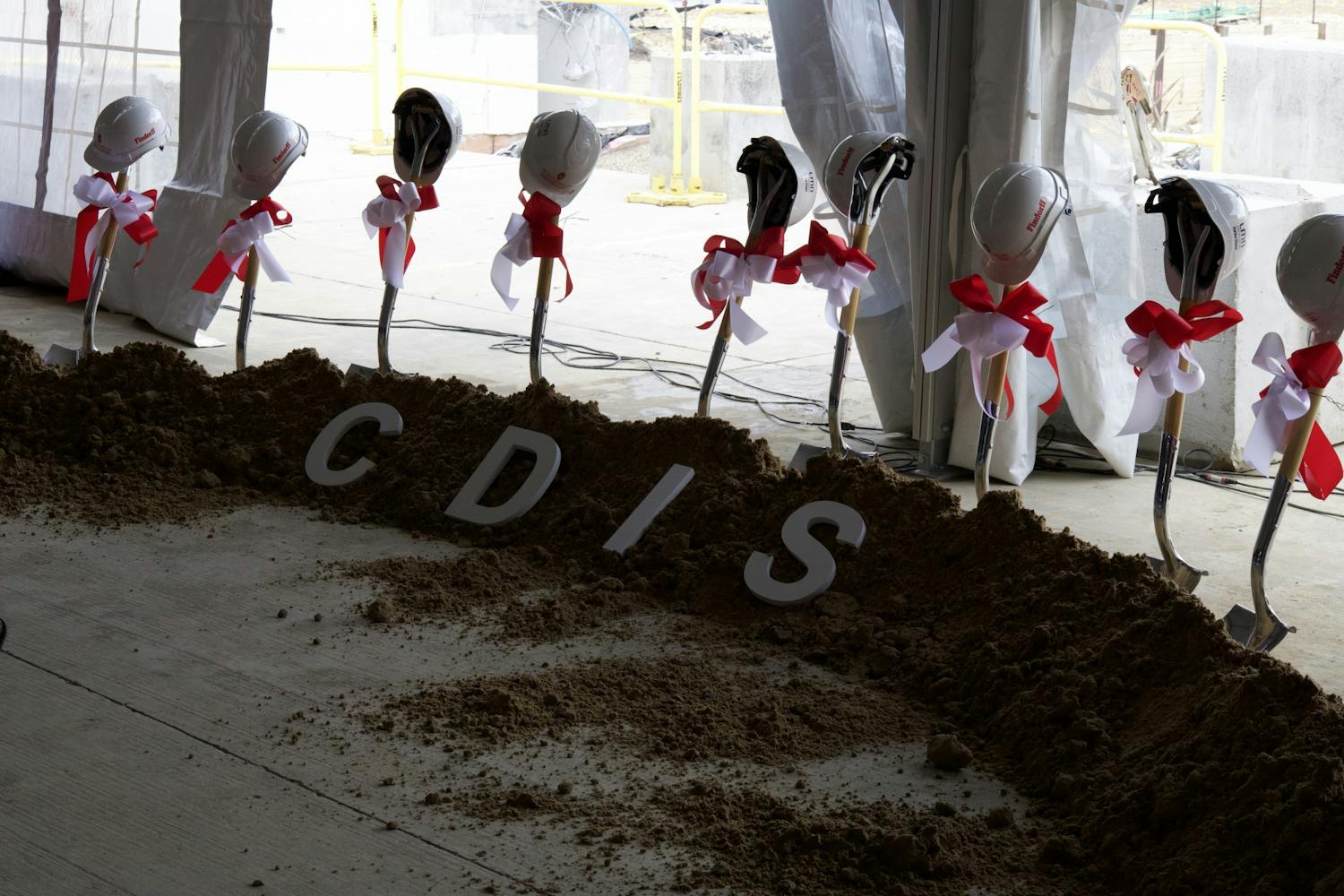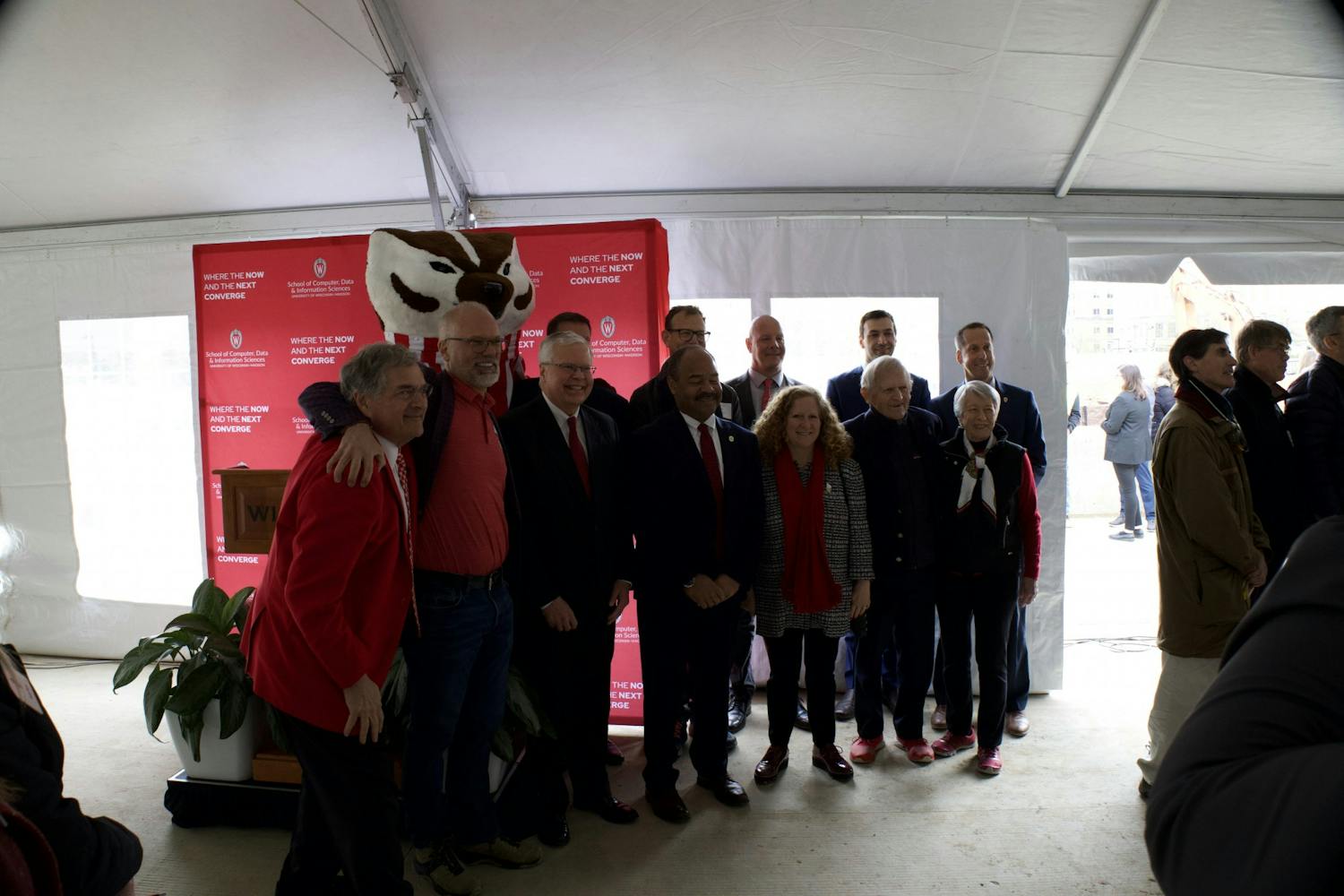University of Wisconsin-Madison and state leaders attended a groundbreaking ceremony on April 25 for a new facility intended to meet student demand for two of the university's fastest growing majors.
Funded privately by $125 million from John and Tashia Mortgridge and $50 million from the Wisconsin Alumni Research Foundation (WARF), the new School of Computer, Data & Information Sciences (CDIS) is set to open its doors in 2025.
Housed under the College of Letters & Sciences, the new building — located at the intersection of Johnson and Orchard Streets — will contain the departments of Computer Sciences, Statistics and the Information School.
“Aligned with the Wisconsin Idea, the CDIS building will be a beacon of innovation, collaboration — a ‘white house’ for tech across Wisconsin nurturing a diverse and inclusive tech community and enabling computational fluency,” CDIS Director Tom Erickson said at the ceremony.
Data Science is the University of Wisconsin-Madison’s fastest growing major, and computer sciences is the most popular and second fastest growing major. While most other comparable universities limit the enrollment for these majors, UW-Madison continues to offer CDIS programs to any L&S student, Erickson said.
The increased growth has not come without challenges. The computer sciences major was only 17% female in 2022, and according to Erickson, UW-Madison’s computer science faculty is considerably smaller when compared to other departments across the country.
The department has outgrown its current facility due to student demand, Erickson said. Currently, only about 20% of computer sciences courses are hosted in the Computer Sciences and Statistics Building.
Gov. Tony Evers spoke at the event along with UW System President Jay Rothman, UW-Madison Chancellor Jennifer Mnookin, John Morgridge and interim Provost Eric Wilcots. Although construction and leveling were already underway at the site, the ceremony celebrated UW-Madison’s and Wisconsin’s future of data and innovation.
“Computing, data and information drive so much of the world today,” Wilcots said. “Society also demands that our students are prepared to understand the human and ethical sides of computing data.”
Evers and Morgridge joked about the first computers they worked with to contextualize how far computing has advanced throughout their lifetimes. Morgridge referenced a 25-ton Honeywell Datamatic he used while he was a lieutenant at Dover Air Force Base in Delaware, and Evers described using a punch card when taking a coding class at UW-Madison.
Evers also said the new CDIS facility was important for growing Wisconsin’s future talent and economy.
“The field [of computer, information sciences] overlaps every single industry in the state of Wisconsin and in the world,” Evers said. “Building facilities and programs like this will be integral to our students and our economy.”
The building’s commons will be named after late Chancellor Emerita Rebecca Blank, officials announced during the event. Additionally, university leaders said the UW-Madison Computer Sciences department’s U.S. News ranking increased from 17th to 12th nationally.
Noe Goldhaber is the college news editor and former copy chief for The Daily Cardinal. She is a Statistics and Journalism major and has specialized on a wide range of campus topics including protests, campus labor, student housing, free speech and campus administration. She has done data analysis and visualization for the Cardinal on a number of stories. Follow her on Twitter at @noegoldhaber.


